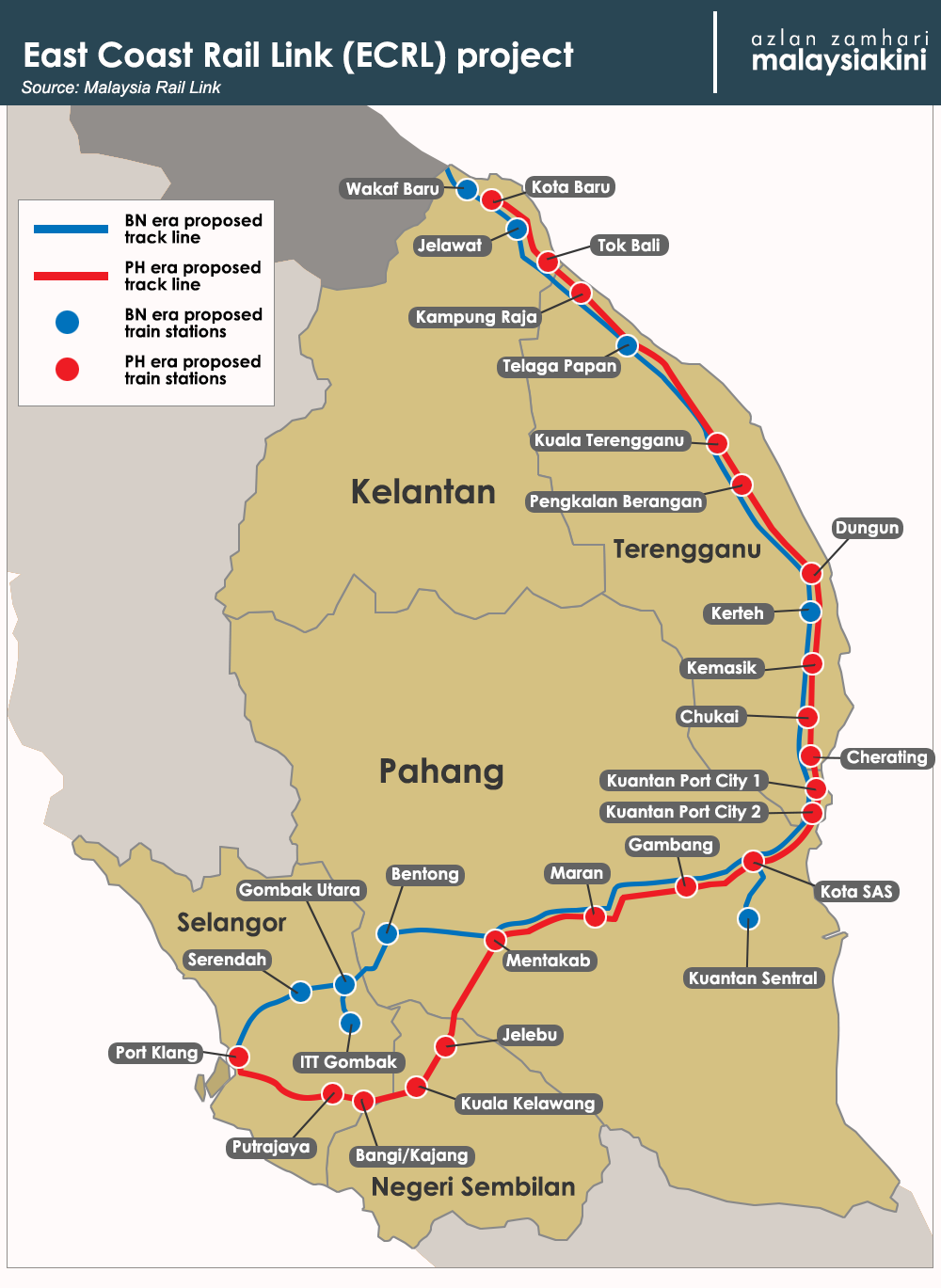The implementation of the East Coast Rail Link (ECRL) project is based on economic interests and technical issues and is not politically motivated, said Transport Minister Wee Ka Siong.
He said the decision to revert to the original alignment, which is called the ECRL 3.0 alignment, was to maximise the economic and technical advantages for the whole project and its spillover effects.
According to him, the ECRL 3.0 alignment was to complete the formation of the national cargo hub in Serendah and increase the efficiency of the Keretapi Tanah Melayu Bhd (KTMB) and ECRL cargo services.
“This is important because 70 percent of ECRL's revenue is from cargo transportation,” he said in a statement today in response to an article published on a portal that claimed the construction of the ECRL was politically motivated.
Wee said the national cargo hub was to facilitate seamless rail connectivity from Serendah to economic corridors and ports in Peninsular Malaysia, including the Northern Corridor Economic Region (NCER) and Penang Port, East Coast Economic Region (ECER) and the Kuantan Port as well as Iskandar Malaysia and Port of Tanjung Pelepas.
He said the connectivity through the original alignment to Port Klang with Westport and Northport offered better routes for international trade, making them more attractive for export-orientated business industries.
Meanwhile, the connection until the final route or ‘last-mile’ Kuantan Port and Port Klang under ECRL 3.0 would make both coastal valleys closer with the existence of a land bridge that will facilitate the transfer of goods, he said.
Wee had previously been reported to have said that the ECRL project, which was expected to be completed in 2026, had reached 20.37 percent completion in January 2021 compared to the original schedule of 19.39 percent.
The ECRL 3.0 alignment is also expected to boost new developments and townships as well as spur commercial activities in relatively new areas like Puncak Alam and Kapar which have both been designated as future stations for the ECRL.
Meanwhile, he said the northern alignment was expected to attract 26 million tonnes of cargo and five million passengers in the first year of operation while the southern alignment was predicted to attract nine million tonnes of cargo and four million passengers during the first year.
Wee also said that the government would still need to continue the construction of the Serendah bypass despite the building of the southern alignment because the bypass would immediately resolve the issue of bottleneck and KTMB freight congestion around Kuala Lumpur.
- Bernama


No comments:
Post a Comment
Note: Only a member of this blog may post a comment.